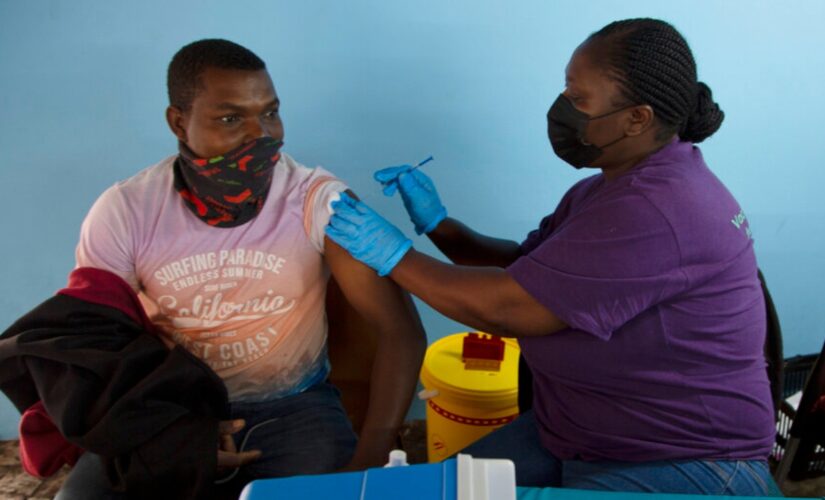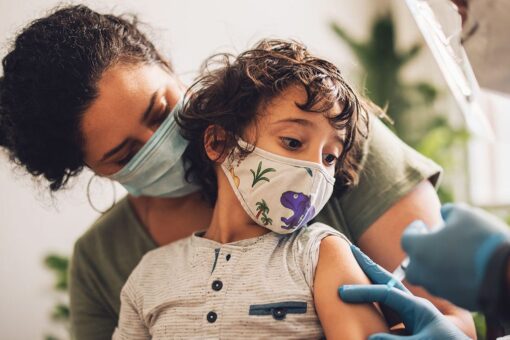South African excess deaths nearly doubled in the week beginning Nov. 28 from the previous week, according to a South African Medical Research Council report.
About 2,076 weekly excess deaths from natural causes were recorded, with the cumulative excess deaths since May 3, 2020, reaching close to 276,000 for all age groups.
In the preceding week, 1,091 excess deaths from natural causes were reported.
Weekly deaths are still below their mid-January peak of around 15,000 for the country. South Africa’s official coronavirus death toll is just over 90,000, Bloomberg reported Wednesday.
OMICRON V. DELTA: BATTLE OF CORONAVIRUS MUTANTS IS CRITICAL
This update comes as South Africa reported nearly 20,000 new COVID-19 cases on Wednesday – a record since the detection of the omicron variant, according to Reuters.
It was not immediately clear how many infections had been caused by omicron, though the “variant of concern” has spread to at least 11 African countries.
The World Health Organization (WHO) said Thursday that weekly COVID-19 cases in the continent surged by 93%, though hospitalizations across South Africa remain low.
A woman is vaccinated against COVID-19 at the Hillbrow Clinic in Johannesburg, South Africa, Monday Dec. 6, 2021. South African doctors say the rapid increase in COVID-19 cases attributed to the new omicron variant is resulting in mostly mild symptoms.
(AP Photo/ Shiraaz Mohamed)
The agency said that Africa had recorded more than 107,000 cases in the week ending Dec. 5, up from around 55,000.
Southern Africa recorded the highest increase in new cases, with a 140% hike “mainly driven by an uptick in South Africa.”
More research is being conducted to determine whether omicron is fueling the surge of cases seen in Africa, the WHO noted, adding that emerging data from South Africa indicates omicron may cause less severe illness.
Some officials in African countries have reported that initial cases appear to be mild.
Namibia has confirmed 18 cases of omicron, none of which are hospitalized, the country’s health minister Kalumbi Shangula said.
“Cases are going up, but admissions are low,” Shangula explained.
OMICRON IN THE US: WHERE IS IT THIS WEEK?
“Omicron is a new variant, more is yet to be known about it, its behavior and the effect that it will have on the pandemic trajectory,” he added. “The information available indicates current vaccines are still effective in reducing severe illness, hospitalization and death.”
Much remains unknown about omicron’s severity, transmissibility and ability to evade vaccines and immune response.
However, top U.S. infectious disease expert Dr. Anthony Fauci has said that omicron “almost certainly is not more severe” than the delta variant and U.S. Centers for Disease Control and Prevention (CDC) director Rochelle Walensky told The Associated Press that mostly all 40 people infected with omicron in America are only mildly ill.
One person was hospitalized, but no deaths have been reported, CDC officials said.
Puseletso Lesofi, prepares to sequence COVID-19 omicron samples at the Ndlovu Research Center in Elandsdoorn, South Africa, Dec. 8, 2021. (AP Photo/Jerome Delay)
The WHO said preliminary data on hospitalizations in South Africa between Nov. 14 and Dec. 4 found that ICU occupancy was only 6.3% — a low number compared to when the country was facing the peak linked to the delta variant in July.
Africa accounts for nearly half of the nearly 1,000 omicron cases reported by 57 countries and has administered 248 million COVID-19 vaccine doses so far.
Only 7.8% of Africa’s population is fully vaccinated and the director of the Africa Centers for Disease Control and Prevention said Thursday that African governments might have to resort to COVID-19 vaccine mandates.
“We don’t need to get there if we just do the right thing,” Africa CDC’s director John Nkengasong told reporters.
CLICK HERE TO GET THE FOX NEWS APP
Only six African countries have met the global target of vaccinating 40% of their populations against COVID-19 by the end of this year.
The African continent is now receiving around 20 million vaccine doses a week, but some countries have been unable to distribute vaccine donations in time and have handed back doses or destroyed them.
Nkengasong called vaccine hesitancy there “extremely unfortunate” after African officials have fought for months against dramatic vaccine inequality between their nations and richer ones around the world.
The Associated Press contributed to this report.




